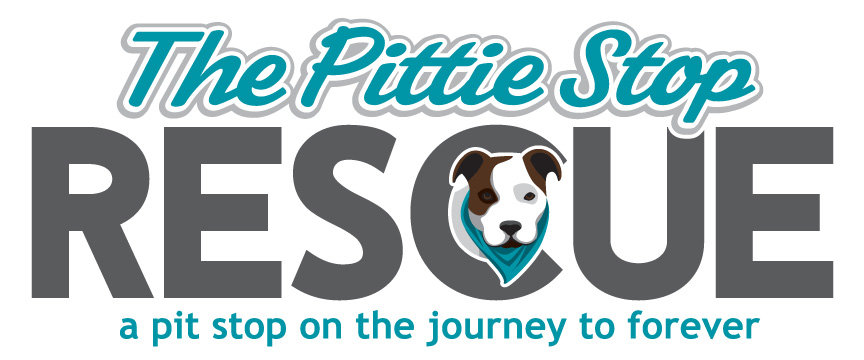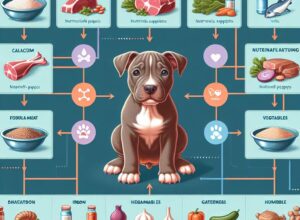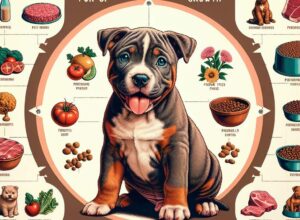
When it comes to raising a healthy pitbull puppy, the nutrition you provide is the foundation for a robust life, particularly for their bones and joints. These playful and energetic dogs need the right balance of nutrients to ensure they grow up strong and healthy. Let’s dive into how to feed your pitbull puppy so they can thrive from the get-go.
Key Takeaways
-
A balanced diet is crucial for pitbull puppy growth, focusing on proteins, fats, carbohydrates, vitamins, and minerals.
-
Protein is essential for muscle development, but the quality and quantity must be monitored to avoid growth issues.
-
Calcium and phosphorus ratios are vital for bone health, but supplements should only be given on veterinary advice.
-
Overfeeding can lead to health problems; therefore, portion control and a feeding schedule are important.
-
Exercise is important for pitbull puppies, but it must be appropriate for their age and growth stage.
Feeding Your Pitbull Puppy for Optimal Bone & Joint Health
Let’s get one thing straight: feeding your pitbull puppy isn’t just about filling their bowl with any dog food you find at the store. It’s about choosing the right ingredients in the correct proportions to promote strong bones and joints. Because these pups are known for their muscular build and agility, their diet needs to support their rapid growth without causing any long-term issues.
Nutrient Balance Is Key
Think of your pitbull puppy’s diet as a delicate balance scale. On one side, you have proteins, fats, and carbohydrates. On the other, there are vitamins and minerals. Your goal is to keep that scale perfectly balanced. Too much or too little of any one nutrient can tip the scales, potentially leading to growth problems and health issues down the line.
Quality Over Quantity
It’s not just about how much your puppy eats, but what they eat. High-quality, nutrient-dense food ensures your pitbull puppy gets all the good stuff without the unnecessary fillers that could lead to obesity or malnutrition. And remember, a chubby puppy is not necessarily a healthy puppy. Excess weight can put undue stress on developing bones and joints.
Puppy Plate Proportions: What to Include?
Now, let’s break down what a well-rounded meal for your pitbull puppy looks like, shall we?
Proteins: Building Blocks of Growth
Proteins are crucial for muscle development in growing puppies. When choosing a food, look for high-quality sources like chicken, beef, or fish. These not only provide the amino acids necessary for muscle and tissue repair but also help with the development of a strong immune system.
Fats: Essential but Not Excessive
Fats are a dense source of energy that help keep your pitbull puppy’s coat shiny and support brain development. However, the right balance is key. Too much fat can lead to rapid growth, putting strain on bones and joints. Look for foods with omega-3 and omega-6 fatty acids, which are beneficial for overall health.
Carbohydrates: Energy for Play
Carbohydrates provide the energy your pitbull puppy needs to play and grow. But not all carbs are created equal. Choose complex carbohydrates like sweet potatoes and brown rice, which offer sustained energy and are packed with additional nutrients.
Vitamins & Minerals: Micros for Pup’s Macros
Vitamins and minerals support a range of bodily functions, from bone health to metabolism. Calcium and phosphorus are particularly important for strong bones, but the ratio between them must be correct. Typically, a ratio between 1.1:1 and 1.4:1 is recommended. Always check with your vet before adding supplements to your puppy’s diet.
Water: Hydration for Healthy Development
Lastly, never underestimate the power of water. It’s essential for every bodily function, including digestion and temperature regulation. Ensure your pitbull puppy has constant access to fresh water, especially after playtime or exercise.
Avoiding Pitfalls: What Not to Feed
Feeding your pitbull puppy isn’t just about providing the right foods; it’s also about knowing what to avoid. Certain foods can be harmful to puppies and should be kept off their menu to prevent any health issues.
Toxic Foods for Puppies
Some foods that are perfectly fine for humans can be toxic to dogs. Chocolate, grapes, raisins, onions, garlic, and xylitol (a common sweetener found in sugar-free products) can be dangerous for your pitbull puppy. Even if they beg with those adorable puppy eyes, resist the urge to share your snacks if they contain these ingredients.
Overfeeding and Underfeeding Concerns
Getting the portion size right is crucial. Overfeeding can lead to obesity and put extra stress on your puppy’s developing skeleton, increasing the risk of joint problems. Underfeeding, on the other hand, can result in nutritional deficiencies that can hinder growth. Stick to the recommended serving sizes on the puppy food packaging, and adjust as needed based on your vet’s advice and your puppy’s activity level.
Supplements: Do Pups Need a Boost?
While a well-balanced diet should provide all the necessary nutrients for your pitbull puppy, there are situations where supplements may be beneficial. However, these should only be considered under the guidance of your veterinarian.
The Role of Calcium & Phosphorus
Calcium and phosphorus are essential for bone health, but they need to be in the right balance. Too much calcium can be just as problematic as not enough. It’s not uncommon for well-meaning pet owners to over-supplement, leading to imbalances that can affect bone development. If you’re feeding a complete and balanced commercial puppy food, supplements are typically not needed.
Joint Supplements: Glucosamine and Chondroitin
Glucosamine and chondroitin are popular supplements for joint health. While they’re more commonly used in adult dogs with arthritis, some believe they can benefit puppies too. However, there’s limited evidence to support this in young, growing dogs. Always consult with your vet before adding these or any other supplements to your puppy’s diet.
Feeding Schedule and Portion Sizes
Consistency is key when feeding your pitbull puppy. A regular feeding schedule helps regulate their digestion and provides the structure they need. But how much and how often should you feed them?
How Often Should Your Pitbull Puppy Eat?
Young puppies typically need to eat three to four times a day. As they grow, you can gradually reduce this to twice daily. Consistent meal times help with house training and can prevent hunger-related behavioral issues.
Reading and Understanding Food Labels
Understanding pet food labels is crucial to providing your pitbull puppy with the best nutrition. Look for foods that meet the AAFCO (Association of American Feed Control Officials) guidelines, which ensure that the food is nutritionally complete for your puppy’s life stage. The label should list high-quality protein sources as the first ingredients and provide information on the guaranteed analysis of nutrient content.
Balancing Diet & Physical Activity
Just like with humans, a balance between diet and physical activity is crucial for your pitbull puppy’s development. You want to make sure they’re getting enough exercise to build strong muscles and bones, but not so much that it puts them at risk of injury. Puppies are still growing, and their joints are vulnerable. Stick to moderate, low-impact activities like short walks, gentle playtime, and plenty of rest. As they mature, you can gradually increase the intensity and duration of their exercise.
Frequently Asked Questions (FAQ)
Now, let’s tackle some common questions you might have about feeding your pitbull puppy for strong bones and joints.
Is a raw food diet suitable for pitbull puppies?
A raw food diet, often known as a BARF diet (Biologically Appropriate Raw Food), can be suitable for pitbull puppies if carefully managed. However, it’s essential to ensure the diet is balanced and meets all the nutritional requirements for a growing puppy. This can be complex and may require consultation with a veterinarian or a pet nutritionist to avoid any nutrient deficiencies or imbalances.
How can I tell if my pitbull puppy is overweight?
It’s important to monitor your pitbull puppy’s weight to prevent obesity, which can strain their developing bones and joints. You should be able to feel their ribs without a thick layer of fat over them, and they should have a visible waist when viewed from above. If you’re unsure, your vet can provide guidance and help you establish a healthy weight range for your puppy.
What are the signs of nutritional deficiencies?
Nutritional deficiencies can manifest in various ways, including poor growth, weight loss, a dull coat, lethargy, and other health issues. If you notice any of these signs, it’s crucial to consult your veterinarian. They can determine if a dietary deficiency or another health problem is causing these symptoms.
When should I switch my pitbull puppy to adult food?
Generally, you should start transitioning your pitbull puppy to adult food when they reach about 80-90% of their expected adult size. This is typically around 12 to 18 months of age for pitbulls, but it can vary. Your veterinarian can help you determine the right time to switch based on your puppy’s specific growth and development.
Can I give my pitbull puppy human vitamins?
Human vitamins are not formulated for dogs and can be harmful to your pitbull puppy. Dogs have different nutritional needs and metabolize vitamins and minerals differently than humans do. Always use supplements made specifically for dogs and only under the guidance of your veterinarian.



